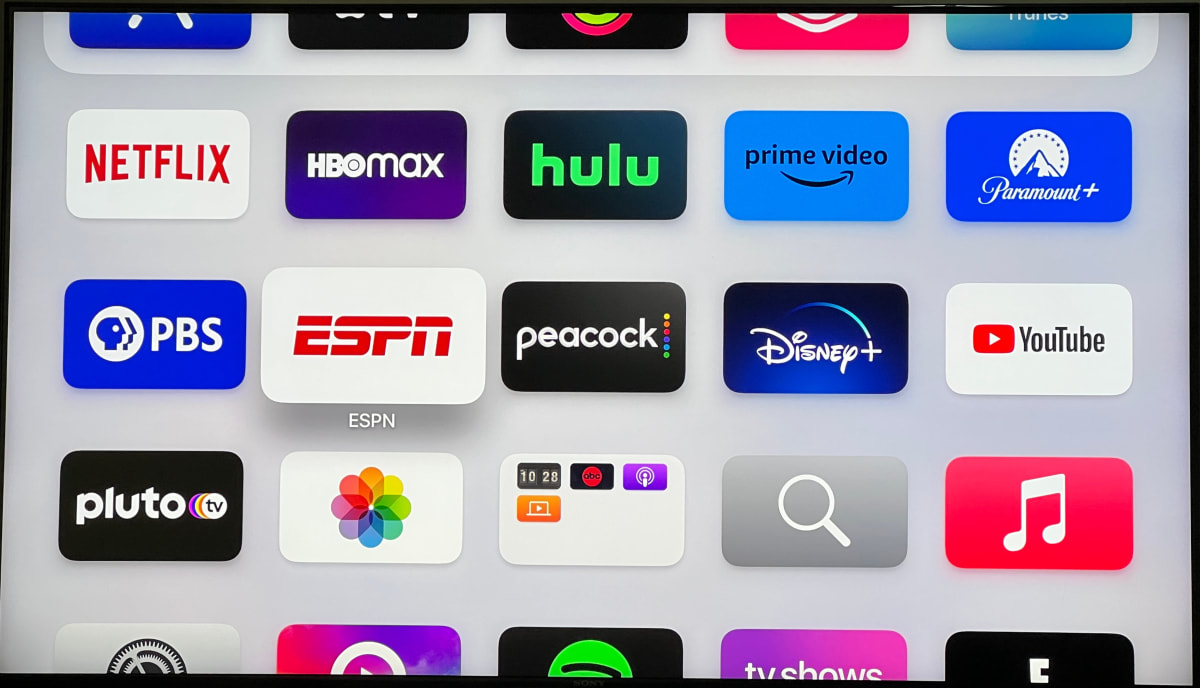VPN and Video Streaming Options in Portugal
Published
technologyVPNfeaturedGet you Netflix, HBO Max, and other US shows in Portugal

Are you considering a move to Portugal, but would still like to watch your favorite American TV shows? Or maybe you have recently moved to Portugal, only to find you can no longer access local news websites from your old hometown? Unfortunately, a lot of online digital content has geolocation restrictions that can make it difficult if not downright impossible for you to access this content when outside the USA. One possible solution is to use a VPN.
What is a VPN?
The term VPN stands for Virtual Private Network. With enough technical knowhow, you could set up your own VPN, but most people subscribe to a VPN service. This service allows you to connect to the Internet indirectly, by securely routing your internet connection through a computer server in a different location. If you want the gory details on how this works, Wikipedia has an excellent article on this. For the purposes of this article, we will focus on how a VPN service will route your internet connection through a server in a different country before providing access to the internet. This allows someone in Portugal to connect to the Internet through a server in New Jersey, for example. To the rest of the internet, that person appears to be in New Jersey, so any geolocation restrictions won’t apply. At least that is the theory. In practice, things do get a bit more complicated, so read on.
Is a VPN legal?
To the best of my knowledge, for an American residing in Portugal, it is perfectly legal to use a VPN. Some countries with repressive governments have outlawed VPNs for their citizens, but fortunately for people from the States or Western Europe, that is not a concern. Now, I am not a lawyer, and this should NOT be taken as legal advice and your circumstances may be unique, so if you have any concerns, you should consult a lawyer to be certain.
Now, if you use a VPN to circumvent geolocation restrictions on content, you are almost certainly breaching the terms of use with that streaming service. Your Hulu or HBO Max subscription is only for use in the USA, and that is called out in the terms of use for each subscription service. So, if you decide to use a VPN to get around these geolocation restrictions, you are violating the terms of use and could get your account terminated. You should read the terms of use for a given service before you consider using a VPN to circumvent geolocation restrictions.
Benefits of a VPN when you move to Portugal
For an American living in Portugal, the main benefit for using a VPN service is to get access to their streaming service accounts, such as Hulu, Peacock, Amazon, Prime, HBO Max, etc… In addition, many local news websites block access outside the USA, so they don’t have to deal with GDPR and other more restrictive privacy laws.
In addition, a VPN service will offer an extra layer of security and privacy. The free airport or restaurant wi-fi service probably isn’t the most secure connection, so using a VPN will improve your internet security, though it should not be seen as completely secure.
Ways to use a VPN
For most consumer-grade VPN applications, you typically have two ways of connecting through a VPN service:
- Install a VPN application directly on the device connecting to the internet, such as your smartphone, streaming device or computer. You give this application permission to control all inbound and outbound internet data, so it can route everything through the VPN. This method works great for smartphones and other mobile devices since the VPN service is always with the device. You can also install a VPN directly on the Amazon Fire TV, making it a very popular choice for expats. With tvOS 17, you can now install VPN software on newer models of the Apple TV. This feature is relatively new, so several of the big VPN providers are still working on their apps for Apple TV, but this will make things much easier for folks using the Apple TV.
- Install a VPN application on your network’s wi-fi router. This is more technically challenging to set up, but once set up offers a VPN for your entire home network, and you can even choose which devices access the internet through the VPN, and which ones access the internet directly through your local internet service provider. A company called FlashRouters sells higher-end wi-fi routers preconfigured and customized to use a VPN service.
Pros and cons of using a VPN
The pros of using a VPN service:
- An added layer of security and privacy, especially for your mobile devices when away from your home network.
- The ability to bypass geolocation restrictions and watch American streaming services outside the US.
- The ability to read local news websites outside the US.
- For web developers and digital marketers, a VPN allows you to preview and test geo-targeted content and online ads.
The cons of using a VPN service:
- Cost. While there are some free options, they are of very low quality and probably aren’t very trustworthy. For a reliable service like ExpressVPN or NordVPN, expect to pay between $70 and $100 per year for your subscription.
- Confusing number of choices. There are a few “big players”, like NordVPN, ExpressVPN or Surfshark, but there are dozens of other choices, lots of introductory pricing and other factors to weigh, making it very difficult to settle on a service, and making it far too easy to have buyer’s remorse afterward.
- Complexity. It is not unusual for a couple to have a dozen or more devices that connect to the internet. Some devices might benefit from using a VPN, while others would be better off connecting directly. Setting up and managing this does take some effort and technical knowledge.
- Performance. There’s no getting around the fact that a VPN service will slow down your internet connection significantly. I have my Apple TV routing through ExpressVPN to a location in Los Angeles, and according to the Speedtest.net app, I get about 40-50 Mb/s download speed, while my computer, using the same wi-fi network and in the same room gets the full 500 Mb/s download speed connecting directly to our MEO internet connection.
Alternatives to using a VPN
As I mentioned in the pros & cons section, there are some downsides to using a VPN, including cost and complexity. If your main priority is getting access to American TV shows, there are a couple of interesting options that do not involve having to use a VPN.
The StreamLocator device and service
I recently spoke with a few people who have been using the StreamLocator device and service. Every one of them spoke highly of their experience. I have not tried this device myself, but I have researched it quite a bit, and everyone’s experience seems to be quite positive. Unlike a VPN, which routes all of your internet traffic through a connection in another country, this device and service “uses a combination of Smart DNS, transparent DNS proxy and domain/IP based smart routing” to allow you to access international catalogs from a huge selection of streaming services. You can even configure location settings based on specific services. You can watch the US version of Max, and the Canadian version of Netflix if you like. Once configured and set up, the StreamLocator generally gets out of your way, and does not negatively affect your internet speeds. Finally, the StreamLocator will work with any device on your network, without having to install software on that device. This is perfect for game consoles or other locked-down devices.
There are a few downsides, but certainly not deal-breakers. First, there is the cost. You must buy their Wi-Fi router device for €144.99, which also includes the first year of service. After that, you pay about €67 per year to maintain the service. The other downside is that this device and service only works for streaming services. If you need to geo-unblock websites, you will still need a separate VPN service.
If the cost and limitations are not a problem for you, the StreamLocator can be a great option.
Subscribe to Portuguese streaming services
You might want to consider simply subscribing to online streaming services in Portugal. For the most part, programming is available in English, with Portuguese subtitles, save for children’s programming, which is typically dubbed in Portuguese.
Not only will you save on the cost of the VPN service, the actual subscription rate for streaming services in Portugal is often quite a bit less than in the States.
| Service | US cost | PT cost | URL for PT version | Notes |
|---|---|---|---|---|
| HBO Max (MAX) | € 18.99 | € 3.91 | https://www.hbomax.com/pt/pt |
HBO Max in Portugal has an annual subscription rate of €46.99 |
| Peacock | € 5.66 | - | Not available in Portugal | |
| Hulu & Disney+ | € 18.90 | € 7.49 | https://www.disneyplus.com/en-pt |
Disney+ in Portugal has a €89.90 per year option, and includes a lot (but not all) of ABC programming. |
| Paramount Plus | € 9.29 | - | Not available in Portugal | Ad-free US version |
| Netflix | € 21.70 | € 15.99 | https://www.netflix.com/pt-en/ | Ad-free versions |
| Apple TV+ | € 9.44 | € 9.99 | https://www.apple.com/apple-tv-plus/ | - |
| SkyShowtime | - | € 3.33 | https://www.skyshowtime.com/pt |
Replaces both Peacock and Paramount Plus, but with limited availability of NBC and CBS programming. Price is for the €39.99 annual plan. |
| Total | € 83.98 | € 40.71 | - |
In total, the price for US and Portuguese streaming services have both increased approximately 20% this year. |
As you can see, not all US services are available outside the US, unfortunately. Services with close ties to US television networks are noticeably missing, such as Hulu, Peacock, and Paramount+. You can find some of this programming on other services, such as the newly launched SkyShowtime, but this tends to only be programming exclusive to the streaming platform and not available on TV networks.
If you need your fix of NFL or other US sports, you have a few options, too. NFL Game Pass provides access to live NFL games and other programming for approximately €105 per year. NBA fans can subscribe to NBA League Pass for €89.99 for the full season. For NHL fans in Portugal, there’s NHL.TV, which I believe costs €15.00 per month, though you’d never know from their website. Finally, for college football fans, you’ll likely struggle to find a local subscription option, since the TV contract situation is so complex.
Unfortunately, some Portuguese streaming services have apps that are only available on Portuguese app stores. I had to create a new iCloud and Google account with my Portuguese address and phone number to install SkyShowtime, for example.


